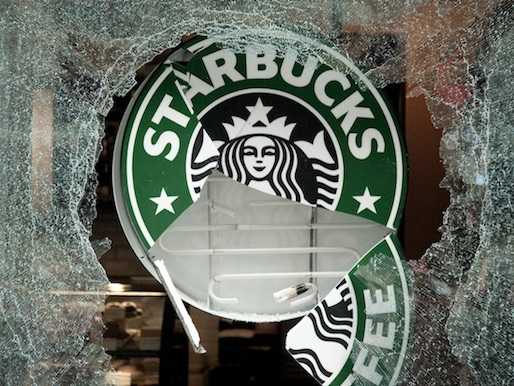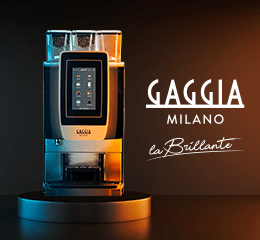Sure, we may have defended Starbucks’ honor in the not-so-distant past, but nobody (and certainly no gigantic corporation) is perfect. Here are five good reasons to keep the haterade flowing instead of the Caramel Macchiatos. It Changed The Language of Coffee For the Worse
Baristas at independent coffee shops all over America (nay, all over the world) practically bristle every time someone orders a “tall” anything, or indignantly insists that the three-ounce beverage placed in front of them “isn’t a macchiato.”
While the Green Mermaid introduced many folks to espresso in the first place and has certainly taught us a lot about lattes, it’s also made it harder and harder for those of us in the specialty coffee industry to coax people out of the black hole of made-up sizes and build-your-own frozen beverages that they’ve grown accustomed to.
Dispassionate Baristas Are Born There
Superautomatic espresso machines—the robotic coffee droids that grind, dose, tamp, brew, and even steam at the push of a button—have snatched any remaining element of craft from the Starbucks barista’s job, eliminating almost any need for the folks behind the counter to develop even a modicum of coffee expertise in order to do their duty. That means most of the employees here would rather be checking their text messages than making you the perfect beverage.
The other unfortunate by-product of this is that it perpetuates the depressing myth that coffee is uniformly fast food, and that baristas as a whole are unprofessional, unskilled button-pushers—which, frankly, is an insult to committed baristas everywhere.
Rumors of Unsavory Business Practices Abound
From using Fair Trade certification as a marketing tool, to preventing its baristas from unionizing, to swallowing mom-and-pop cafes whole, to the occasional tips scandal, Starbucks seems to have made its share of ethically questionable corporate decisions.
As one of the major players on the international coffee market—both in buying and in selling—the company commands an incredible amount of power over growers and consumers alike, and the irresponsibility its leaders have displayed over the years leaves a bitter aftertaste.
Have You Counted Those Calories?
Oversized sugary, fat-laden drinks are a major contributor to the American obesity problem, and that 16 ounce whole-milk caffe mocha with whipped cream you may or may not be sipping while you read this is a big part of that problem. (In case you were wondering, that’s 370 calories and 19 grams of fat.)
Coffee-as-dessert is a great idea when it doesn’t become a daily habit. (I love a shot of whiskey and a dollop of hand-whipped cream in my mug after a celebratory dinner, for instance. But not after every dinner, and not every night.) For some people, though, a morning latte is followed up by an afternoon Frappuccino—and that’s not even counting the maple-glazed scone (440 calories, 18 grams fat) or apple fritter (420 calories, 20 grams fat) that goes with it. Of course it’s not Starbucks’ responsibility to make healthy choices for its customers, but there is something to be said about the super-size culture that fast food (or “fats food,” as I prefer) has made so accessible, appealing, and addictive.
Backlash!
Would we be aware that there were such a thing as a coffee snob if we hadn’t become coffee snobs in the first place? Now, like hipster-hating hipsters everywhere, coffee people are lashing out at each other with some regularity, accusing one another of snobbishness and mocking the bourgie tastes we’ve developed for “proper” cappuccinos and other pricey specialty drinks in the caffeine catalog.
Can’t we all just get along…and focus on drinking better coffee, while we’re at it?
Source: [via]














